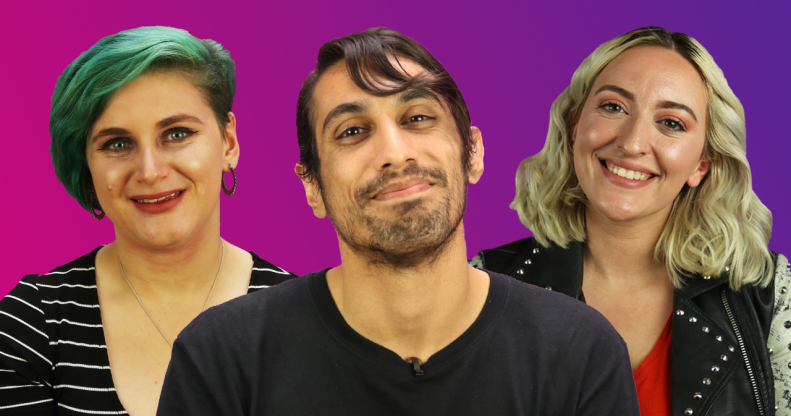Bi Visibility Day: Bisexual people on why it’s not just a phase

Lois, Vaneet and Essie share their favourite things about bisexuality (PinKNews)
For Bi Visibility Day, we asked bisexual people what their favourite things about being bisexual are.
We asked three bisexual people to share, on camera, what they love about their bisexual identities and why you should stop believing it’s a phase.
Vaneet Mehta, 27, is an Indian bisexual blogger, first came out to a friend after realising he was “in love with a guy, who was a mutual friend of ours.”
“He was straight, so that went as well as you could expect,” he laughs.
As a bisexual man, he says he is often assumed to be “just gay”, while bi women are assumed to be “actually straight”.
“It kind of feels like no matter what our sexuality is, our attraction to men is viewed as trumping everything,” he tells PinkNews.
Watch the video below:
Happy #BiVisibilityDay! ? https://t.co/XUJaoLNpcg
What do you love about being bi? pic.twitter.com/OJKisc0Q4g
— PinkNews (@PinkNews) September 23, 2019
Bisexuality is not a phase.
Lois, 24, first came out age 14 and says she has been “coming out every day since then”.
“Bi people are not just a phase,” she says. “You can be a better bisexual ally, first and foremost by listening to the bisexual community.
“The stereotype I have heard most is: ‘Oh I used to be bi and then I actually came out’. Whereas I actually am bi and I am out.”
She is the founder of the Bi Survivors’ Network.
“It’s the UK’s first and only resource for bisexual people who are survivors of sexual and domestic violence,” she explains.
Biphobic stereotypes, she says, contribute to bisexual people negative experiences of dating and relationships.
“Assuming bi girls are easy is one of the reasons bi people face such high levels of sexual violence,” she adds.
Internalised biphobia is a real problem.
Essie, a bisexual model, came out more publicly on her Instagram last year.
She struggled to come to terms with being bi, she says, because of stereotypes that all bisexual people are polyamorous, leading to her having “internalised biphobia”.
Being in a “straight-coded” relationship meant she felt like she was excluded from queer spaces.
Now she’s embraced who she is and says others should too.
“Take what people say as their truth,” she tells PinkNews. “Don’t try and argue with them about who they are and how they feel.
“Being a good ally is actually letting people have the opportunity to be themselves and giving people that space.”

